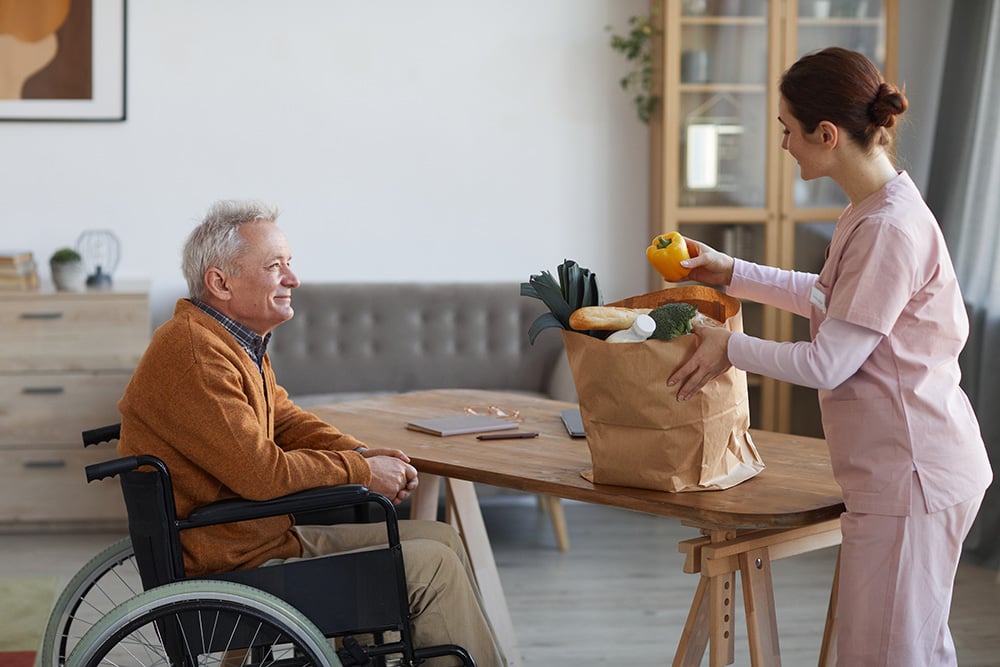Top Strategies to Seamlessly Downsize Your Life
Ready to downsize your life? This guide gives you step-by-step strategies to reduce your living space and possessions efficiently. Learn…

Ready to downsize your life? This guide gives you step-by-step strategies to reduce your living space and possessions efficiently. Learn about planning, decluttering, and making a smooth transition.
Key Takeaways
- Start your downsizing journey with a simple plan that breaks everything into manageable steps. Taking it one piece at a time can make the whole process feel much less overwhelming.
- Take a good look at your future home—think about the size, layout, and how you’ll use the space. That will help you decide what’s truly important to bring with you.
- And don’t hesitate to ask for help! Working with a senior move specialist can take a big weight off your shoulders. They’re great at making the process smoother and less stressful for both you and your family.
Start With a Plan

Starting your downsizing journey with a clear vision and plan makes all the difference. Begin early and tackle tasks one step at a time to keep things manageable. A thoughtful approach can make the whole process feel much more doable.
Start by listing all your belongings to decide what to keep and what to let go. To maintain focus and organization, follow these steps:
- Prioritize valued possessions.
- Create a list of items to declutter in each room.
- Set a timer for each room to encourage efficiency and avoid feeling overwhelmed.
Tackle the downsizing process gradually, one step at a time. This approach simplifies the task and allows for thoughtful decisions about what truly matters in your new space. A well-thought-out plan will be your best ally in this endeavor.
Assess Your Needs
Assessing your needs is crucial for a successful downsizing journey. Plan your move well in advance, ideally more than a year ahead, to allow ample time for making informed decisions. Key considerations include:
- Knowing the dimensions of your new space
- Understanding floor plans
- Checking elevator sizes
To simplify decision-making and approach choices with clarity, consider the following steps:
- Reflect on your priorities.
- Consider lifestyle changes that necessitate downsizing, such as needing a more manageable living space due to retirement plan income.
- Evaluate your needs in each room, for example, assess duplicate utensils in the kitchen to identify unnecessary items.
Start your assessment in places like the garage, where unused items tend to collect. A senior downsizing specialist can help you decide what to keep and design a floor plan that makes your new home both comfortable and practical for your lifestyle.
Declutter Room by Room

Tackling one room at a time can make decluttering feel much more manageable. Start by listing your belongings to decide what to keep, sell, or toss. Use a simple sorting system to quickly separate items into keep, donate, or discard categories.
Plan for dealing with unwanted items by:
- Contacting charities for donation pickups or organizing a garage sale.
- Considering re-homing usable items by offering them to friends or family before deciding to donate or discard.
- Carefully inspecting each item to avoid unintentionally discarding valuable or sentimental belongings.
To effectively sort your possessions:
- Allow enough time for sorting, ideally spreading the task over a few days, or months.
- Involve family members or friends to alleviate stress and provide emotional support.
- Use a systematic approach to ensure your new living space is clutter-free and ready for a fresh start.
Organize Important Documents
Organizing important documents is a critical step in the downsizing process. Start by sorting legal documents, insurance policies, social security information, and Medicare cards, ensuring they are easily accessible. Include financial documents, such as tax returns and bank statements, in your organization efforts.
Include important documents such as passports, diplomas, and birth certificates in your collection of essential records. Store these documents in a safe deposit box or a fireproof safe for secure storage. Additionally, consider scanning and storing these documents online for added security and convenience.
Include the following in your paperwork checklist:
- Personal information like doctors and agent contact info
- Personal assets
- Liabilities
- Tax returns
Clearly labeled and securely stored documents make it easy to find what you need both during and after your move.
Sorting Personal Possessions

Sorting through personal possessions can be emotional. To simplify decision-making, consider the following steps:
- Set priorities for what you want in your new living space.
- Create an inventory of your belongings to determine what is essential and what can be disposed of.
- Use boxes or bins to sort items into categories, making the process more manageable.
- When downsizing clothing, keep only items worn in the last 12 months and not worn regularly.
- Take photos of collections and consider giving them as gifts to preserve memories without keeping the physical objects.
- Donate unwanted items to organizations, some of which offer pickup services, helping you declutter while benefiting those in need.
- Consider taking photos and creating an album for sentimental items and meaningful items to preserve memories without keeping the physical objects.
Sorting through your belongings with a plan helps make your new space more organized, practical, and free of extra clutter.
Packing Essentials
Packing essentials properly is key to a smooth move. Important items include:
- Uniform-sized boxes: make stacking and moving easier, minimizing the risk of damage.
- Wardrobe boxes: designed to protect hanging clothes during a move.
- Stretch wrap: effective for bundling items together and securing furniture.
Tips for packing and moving:
- Seal boxes with heavy-duty tape to ensure they stay secure during transport.
- Rent eco-friendly plastic crates as a sustainable alternative to cardboard.
- Properly label boxes during packing to identify their destination room or area in the new home, helping to avoid lost or damaged possessions.
Packing valuables and seldom-used belongings yourself helps maintain their safety. Enlist family members, friends, move specialists, or moving companies to assist with packing chores. With the right strategy, your move will be more organized and less stressful.
Address Change Notifications
Changing your address is an important part of downsizing. Be sure to notify your banks and financial institutions so you don’t miss account statements or important notices. Let your insurance providers know as well to update your policies and avoid any gaps in coverage.
Don’t forget to update your memberships and subscriptions to keep services running smoothly. Many companies offer simple ways to do this online or by calling customer service. Some may ask for a specific form or extra documentation to confirm the change.
Keeping everyone informed of your new address helps ensure nothing slips through the cracks. Maintaining a current address book can make this process easier and more organized.
Engage Professional Help
Engaging professional help can significantly streamline the seniors downsizing process. A senior move specialist offers a comprehensive solution, assisting with organizing and sorting belongings, overseeing packing and unpacking, and ensuring items are placed correctly in the new home. This alleviates stress for family members, allowing them to focus on providing emotional support.
Move managers often have access to a network of vetted professionals, helping families find additional services they may require during the move. This network can include real estate agents, auctioneers, and cleaning services, providing a one-stop solution for all your downsizing needs.
Hiring a senior relocation specialist helps older adults and their families feel less overwhelmed by the logistics of their upcoming move. With professional help, the moving process becomes more manageable and less stressful, offering peace of mind.
Preparing for Moving Day

Getting ready for moving day is key to keeping things running smoothly. Creating an inventory list helps you track your belongings and quickly spot anything that goes missing. Having a first-aid kit nearby is also a smart move in case of minor injuries.
Pack a few “open first” boxes with essentials like toiletries, clean bedding, and basic kitchen items so you’re set for the first night. Confirm the arrival time with your movers ahead of time to stay on schedule. Keep all important paperwork in a separate binder so it’s easy to find when you need it.
Snacks and drinks will help keep your energy up throughout the day. With some thoughtful planning, your move can be much less stressful and far more efficient.
Settling Into Your New Home
Settling into your new home starts with setting up your sleeping accommodations and bathroom immediately for the first night. Your ‘open first’ box should contain items for immediate use, such as:
- fresh bedding
- soap
- toilet paper
- toothbrush
- nightclothes
- towels
- plates
- utensils
- clothes
- a flashlight
- tape
- scissors
- cash
This ensures you have the essentials right at hand.
Communities often aim to make you feel at home in your new environment. To cope with feelings of losing familiarity, actively engage in your new community by participating in local events and activities, helping you build new connections and adjust to your senior living community new lifestyle.
Focusing on these initial steps will create a comfortable and welcoming environment in your new home, marking a new chapter and making the transition smoother and more enjoyable in new homes.
Summary
Downsizing is more than just moving; it’s an opportunity to embrace a new chapter with less clutter and more freedom. Remember to start with a clear plan, assess your needs, declutter room by room, and organize your important documents. Sorting personal possessions thoughtfully and packing essentials properly will make the process smoother.
Don’t forget to update your address and consider engaging professional help to ease the transition. Preparing for moving day and settling into your new home with the essentials will ensure a comfortable start. Embrace this change as a positive step towards a simpler, more fulfilling life.
Frequently Asked Questions
How early should I start planning my downsizing move?
It’s smart to begin planning your downsizing move at least a year in advance. This gives you plenty of time to sort through belongings and make thoughtful decisions.
What should I do with duplicate kitchen utensils?
To declutter your kitchen, assess your duplicate utensils and consider donating or recycling the ones you don’t use. Keeping only what you need will make your cooking experience much more enjoyable!
How can I ensure my important documents are safe during the move?
To keep your important documents safe during a move, use a fireproof safe or a safe deposit box, and consider scanning them to store online. This way, you’ll have peace of mind knowing they’re secure and accessible.
What are some essential items to pack for the first night in my new home?
Make sure to pack fresh bedding, toiletries, and basic kitchen items in your ‘open first’ box for a comfortable first night in your new home. A flashlight and some cash can also come in handy!
Should I hire a professional move manager?
Hiring a professional move manager can really ease the stress of downsizing and relocating, helping you streamline the entire process. If you want a smoother experience, it’s definitely worth considering!







